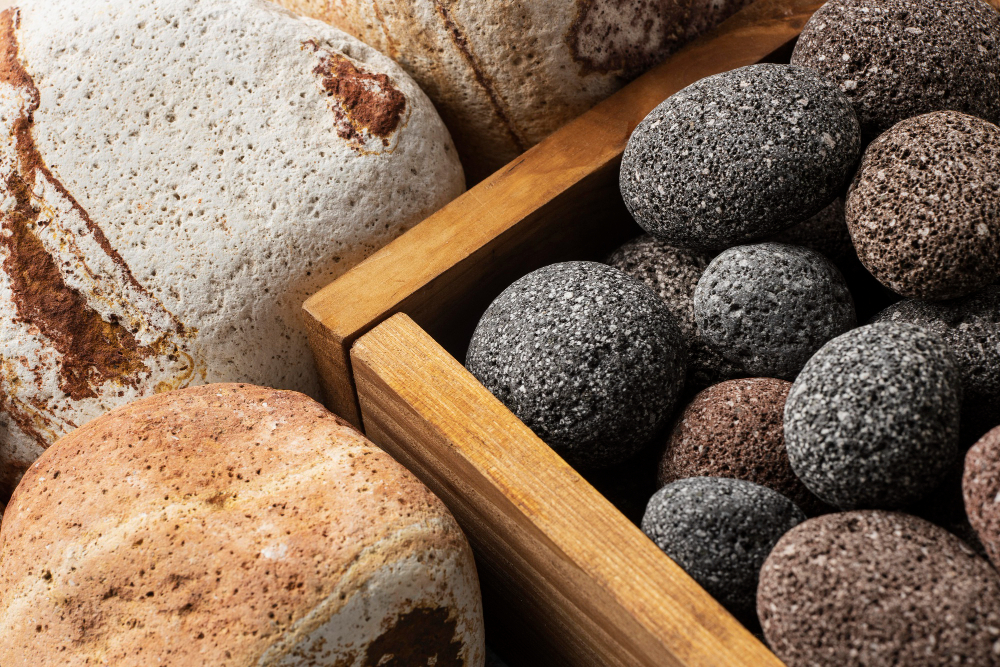In today's world, where environmental concerns are at the forefront of many discussions, the choice of materials for construction and design plays a crucial role in shaping a sustainable future. Soapstone, a natural stone with a long history of use, is emerging as a popular choice for environmentally conscious consumers and businesses. In this blog, we'll explore the environmental benefits of choosing a soapstone manufacturer in India and why it's a step towards a greener and more sustainable world.
Understanding Soapstone: A Timeless Natural Stone
Let's start with the basics. Soapstone is a metamorphic rock primarily composed of talc, with varying amounts of other minerals like quartz, mica, and chlorite. Its unique properties, including its soft texture and high heat retention, have made it a favored material for various applications for centuries. From countertops and sinks to fireplace surrounds and sculptures, soapstone's versatility knows no bounds.
Responsible Sourcing: Minimizing Environmental Impact
One of the primary environmental benefits of choosing a soapstone manufacturer in India lies in the responsible sourcing of raw materials. Soapstone is typically quarried from natural deposits found in different parts of the world, including Brazil, India, and Finland. Unlike some other stone materials that may require extensive energy and resources for extraction, soapstone is often mined using relatively simple and low-impact methods. Furthermore, many soapstone quarries adhere to strict environmental regulations and sustainability practices to minimize their ecological footprint and preserve the surrounding landscape.
Energy Efficiency: Reducing Carbon Footprint
Soapstone's low thermal conductivity is another environmental advantage that contributes to its sustainability. This characteristic allows soapstone to retain heat effectively, reducing the energy required for heating and cooling processes during manufacturing. Compared to materials with higher thermal conductivity, such as granite or marble, soapstone requires less energy input, resulting in lower greenhouse gas emissions and a reduced carbon footprint. By choosing soapstone products, consumers can support energy-efficient manufacturing processes and contribute to global efforts to combat climate change.
Longevity and Durability: Less Waste, More Sustainability
Durability is a hallmark of soapstone, making it a sustainable choice for various applications in residential and commercial settings. Soapstone products, such as countertops and sinks, are known for their longevity and resistance to wear and tear. With proper care and maintenance, soapstone installations can last for generations, reducing the need for frequent replacements and minimizing resource consumption. By investing in durable soapstone products, consumers can help reduce waste and extend the lifecycle of building materials, contributing to a more sustainable built environment.
Recyclability and Reusability: Closing the Loop
Soapstone's sustainability extends beyond its initial use, thanks to its recyclability and reusability. At the end of its lifecycle, soapstone products can be recycled and repurposed into new materials or applications, minimizing waste and conserving natural resources. Additionally, scraps and offcuts generated during the manufacturing process can often be reused or recycled, further reducing the environmental impact of soapstone production. By supporting a circular economy model, where materials are reused, recycled, and repurposed, consumers can contribute to a more sustainable and resource-efficient future.
Health and Indoor Air Quality: A Safe and Healthy Choice
In addition to its environmental benefits, soapstone also offers health advantages for occupants of residential and commercial spaces. Unlike some synthetic materials that may emit volatile organic compounds (VOCs) and other harmful substances, soapstone is inert and non-toxic, making it a safer choice for indoor environments. Soapstone countertops, in particular, are prized for their resistance to bacteria and mold growth, further enhancing indoor air quality and promoting a healthier living environment for occupants.
Conclusion:
In conclusion, choosing a soapstone manufacturer in India offers a range of environmental benefits that contribute to a more sustainable future. From responsible sourcing and energy efficiency to durability, recyclability, and improved indoor air quality, soapstone stands out as a natural choice for eco-conscious consumers and businesses. By embracing soapstone products for construction and design projects, individuals can make a positive impact on the environment while enjoying the beauty, functionality, and longevity of this timeless material. As we strive towards a greener and more sustainable world, soapstone represents a step in the right direction towards a more environmentally friendly future.





Comments